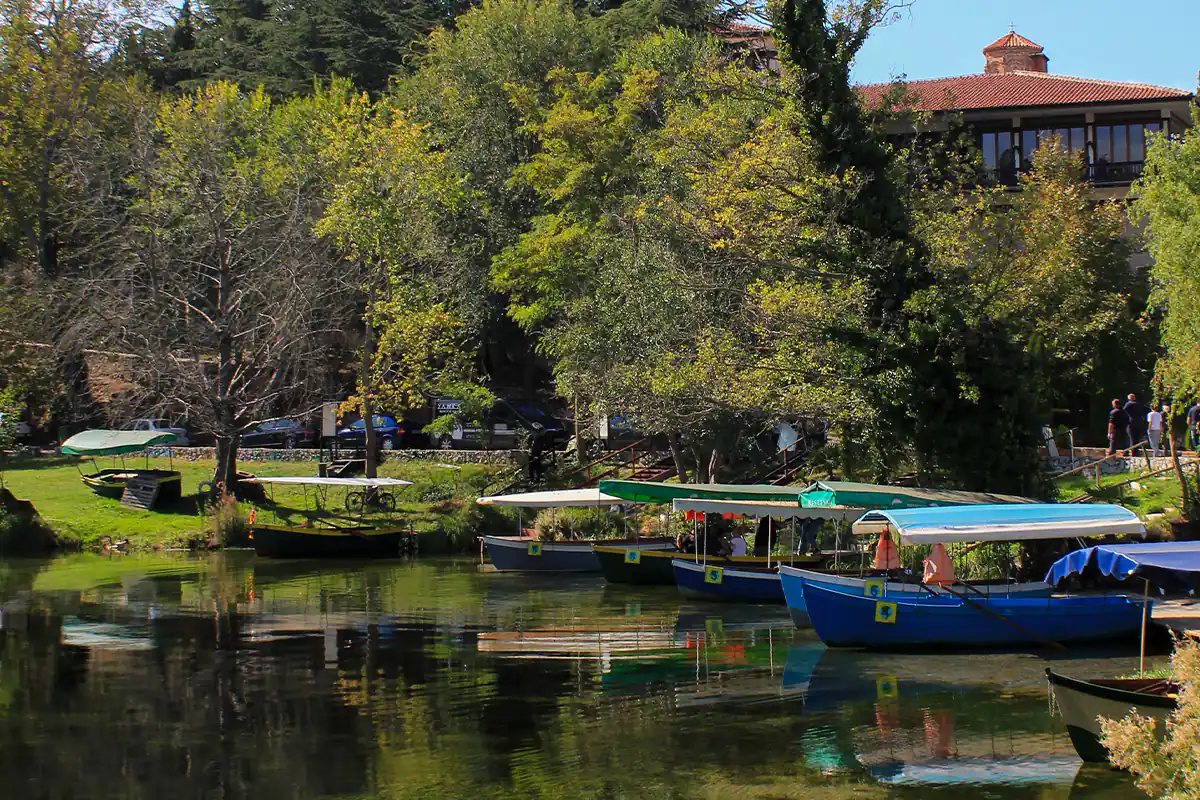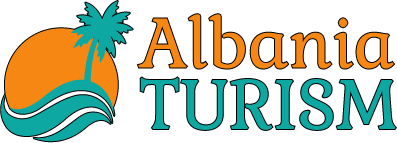Introduction
North Macedonia, a fascinating nation in the heart of the Balkan Peninsula, is our primary focus today. Nestled in Southeast Europe, this Republic is one of the successor states of the former Yugoslavia, gaining independence in 1991.North Macedonia shares its borders with noteworthy nations, including Serbia, Bulgaria, Greece, and most importantly to our discussion,
Albania. This geographic placement enriches the cultural and economic exchanges between these nations. For Albanian readers, these borders are not just lines on a map but doors to shared opportunities and cultural narratives.For Albanians, North Macedonia represents not just a neighbor but a territory resonating with shared history and promising trade prospects. There are stories and experiences shaped under similar influences, such as the Ottoman Empire, making it a compelling subject for those interested in regional peace and collaborative growth.
Geography and Demographics of North Macedonia
Location, Borders, and Key Cities
North Macedonia is strategically positioned in the Balkans, a landlocked treasure of culture and history. With its distinctive location, it is graced with borders to the north by Serbia, to the east by Bulgaria, to the south by Greece, and to the west by Albania. This positioning makes it a vital player for trade and exchange in the regionThe vibrancy of North Macedonia’s cities—
Skopje,
Kumanovo, and
Bitola—serves as a cultural dynamo. Skopje, the bustling capital, is known for its Ottoman and Byzantine cultural blend, while Kumanovo’s charm reflects both traditional and modern influences. Bitola, rich in history, stands as a testimony to the changing times and influences the region has experienced.
Population and Ethnic Composition
North Macedonia’s population is a wonderful tapestry of ethnicities. Approximately 2.1 million people call it home, with Macedonians forming the majority. Albanians, however, are a prominent minority, most notably concentrated in the western and northwestern areas.This ethnic diversity includes Turks, Roma, Serbs, among others, painting a picture of social and cultural variety. The presence of a significant Albanian minority enriches the demographic landscape and strengthens ties between the nations. Their fluctuating numbers are not merely statistics but a reflection of vibrant and lively ethnic interactions.
Important Geographical Features
North Macedonia isn’t only about its people; it boasts striking geographical features as well. Mountainous landscapes dominate, offering numerous peaks and valleys that challenge adventurers and invite tourists. Its lakes, such as
Lake Ohrid,
Lake Prespa, and
Lake Dojran, are gems that invite exploration and promise breathtaking views National Parks of North Macedonia.Lake Ohrid, in particular, stands out both for its beauty and its role as a UNESCO World Heritage Site. It’s not only a hub for biodiversity but also a crucial vein in North Macedonia’s tourism industry. These geographical wonders make North Macedonia not only a neighbor but also a natural wonderland for Albanian visitors and explorers.
Historical Context
Brief History of North Macedonia
North Macedonia’s history is as diverse as its people and landscape. The journey to independence in 1991 marked a new chapter, one which would lead the nation towards modernity and autonomy after years under different empires and federationsFor centuries, North Macedonia was under Ottoman rule, a time that significantly shaped its cultural and social dynamics. Later, it became part of Yugoslavia, navigating its complex political landscape. The 1991 declaration of independence was a pivotal moment that shifted the discourse on nationhood and identity in the region.
Relationship and Historical Ties with Albania
The historical ties between North Macedonia and Albania are profound. Both nations have traversed similar paths, shaped by regional dynamics and large-scale empires like the Ottomans. These shared narratives have fostered a unique cultural identity that both distinguish them from their neighbors and tie them together.Albania’s recognition of North Macedonia’s independence early on is a testament to the longstanding relationship between the two. It’s not merely political but woven into the cultural fabric through shared experiences and mutual respect. Learn more about regional cooperation in our article on Regional Peace and Development.
The contribution of the Albanian community in North Macedonia is noteworthy. For years, Albanians have played essential roles in the nation’s political and cultural spheres Minority Rights Group International – North Macedonia.The journey has not been without challenges. Language rights, education access, and political representation have been significant issues. Yet, the community’s resilience is admirable, and their contributions to North Macedonia’s identity are undeniable. The community is not just a minority; it is a cornerstone of diversity and a testament to multicultural coexistence within the nation.
Political and Cultural Relations Between North Macedonia and Albania
Diplomatic Ties and Cooperation
North Macedonia and Albania present a model of positive diplomatic ties, characterized by frequent high-level visits and cooperation on important issues like regional stability and EU integration. This cooperation is not just a formal affair but reflects a genuine bond between the two nations Albanian Ministry for Europe and Foreign Affairs.Political dialogue between these nations focuses on mutual interests and benefits, including efforts towards ensuring peace, stability, and economic prosperity in the Balkans. Such diplomacy is key to ensuring that both countries can pursue their interests in larger forums like the EU. For insights into regional diplomacy, see our article on Regional Diplomatic Relations.
Role of Albania in Regional Politics and North Macedonia’s Aspirations
Albania serves as a strong advocate for North Macedonia’s aspirations to join Euro-Atlantic institutions, namely the European Union and NATO European Commission – North Macedonia. By endorsing North Macedonia’s journey towards EU integration, Albania stands as a vital ally in the regional and international arena.The support is mutual, as both countries recognize the importance of aligning with European standards and norms to facilitate overall regional progress. Such unity amplifies efforts and voices, making aspirations of individual nations reflections of broader regional goals.
Cultural Exchanges and Shared Traditions
Cultural exchanges between North Macedonia and Albania are rich and frequent. Festivals, art collaborations, and cross-border cultural events illuminate the shared traditions that bind these two neighboring nations
UNESCO – Intangible Cultural Heritage.Shared culinary experiences, music groups, and historical narratives create a vibrant connection that thrives without boundaries. Common cultural threads such as similar culinary tastes, folk dances, and musical expression underscore the intertwined identities of the people from both nations. Dive deeper into shared traditions in our dedicated article on Cultural Connections in the Balkans.
Economy and Tourism
Key Economic Sectors in North Macedonia
North Macedonia’s economy is diverse, with key sectors including agriculture, manufacturing, and a growing service industry. The nation’s tourism sector, thriving with its natural beauty and historical allure, presents opportunities for investors and travelers alike World Bank – North Macedonia.The agricultural sector nurtures a connection with the land and provides numerous avenues for trade. The manufacturing sector, meanwhile, benefits from the strategic geographic position, offering Albanian businesses potential for partnerships and growth in various industries such as construction and energy.
Popular Tourist Destinations for Albanians
For Albanian travelers, North Macedonia is a nearby paradise of landscapes and culture. Lake Ohrid, with its status as a UNESCO World Heritage Site, and the vibrant capital city of Skopje attract numerous visitors. Lonely PlanetMavrovo and Pelister National Parks, with their majestic mountains and forests, are popular spots for both nature lovers and those seeking adventure. The ease of travel and proximity make North Macedonia an ideal destination for Albanians seeking quick getaways steeped in beauty and culture.
Traveling from Albania to North Macedonia is convenient and straightforward. With several road routes connecting the two countries and the absence of major visa requirements for short-term tourist visits, it makes for an accessible journey Albanian Ministry for Europe and Foreign Affairs.The currency in North Macedonia is the Macedonian denar (MKD), and tipping is generally practiced in the hospitality sector. English and Albanian are widely spoken, especially in areas frequented by tourists, ensuring a welcoming atmosphere for visitors from Albania.
Language and Education
Status of the Albanian Language
The Albanian language enjoys recognition within North Macedonia, particularly in areas with a significant Albanian population. This acceptance reflects a dedication to multiculturalism and respect for diversity OSCE – North Macedonia.Albanian-language education is readily available at multiple levels, including primary, secondary, and higher education, which strengthens community ties and ensures robust educational opportunities for Albanian youth in North Macedonia.
Opportunities for Cultural and Educational Exchange
Cultural and educational exchange programs between North Macedonia and Albania act as bridges of understanding and knowledge. Student exchange programs, joint research projects, and cultural events celebrate shared histories and foster mutual advancement Balkan Universities Association.Collaborative efforts between universities in both countries enrich educational landscapes, providing students and faculty with broad perspectives that transcend borders and unite ideologies.
Current Events and Future Outlook
Recent Developments
Recent initiatives in North Macedonia demonstrate its commitment to strengthening democratic institutions and pushing towards EU accession efforts. The focus on battling corruption, enhancing infrastructure, and attracting foreign investment signals a nation keen on progress Reuters – North Macedonia.Nonetheless, issues like relations with Bulgaria pose challenges impacting EU negotiations, demanding delicate diplomacy and enduring effort. Such dynamics emphasize the nation’s resolve to overcome barriers for a brighter future.
Future Prospects for Regional Cooperation
The promise of closer cooperation between North Macedonia and Albania offers an optimistic outlook. By tackling mutual challenges like economic development and political stability together, they can foster a stable and prosperous region International Crisis Group – North Macedonia.The pursuit of EU integration remains a primary goal, not only promising developmental benefits but also reinforcing the shared determination to embrace European values and systems. As these nations evolve, their partnership will likely serve as a cornerstone for regional peace.
Conclusion
North Macedonia holds immense significance for Albanian readers due to shared history, geographical proximity, and cultural bonds. It’s not simply a neighbor; it is an invitation to explore a rich cultural narrative rooted in kinship and potential.Encouraging further exploration of North Macedonia by Albanian readers promises not only personal enlightenment but fosters deeper regional cooperation and peace. This journey of discovery is more than observing a foreign land; it’s about embracing a shared future driven by mutual respect and common goals.




